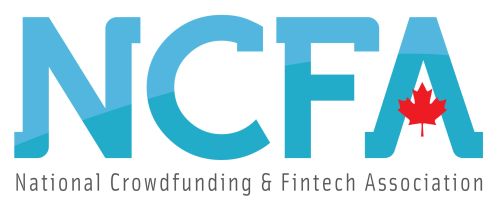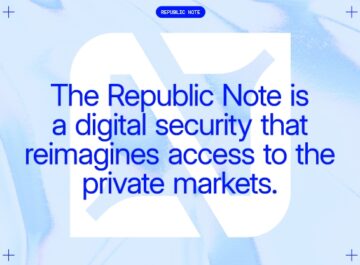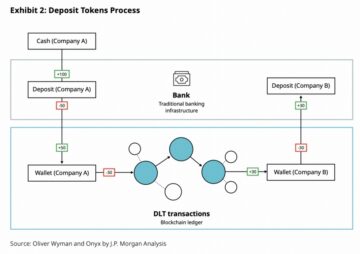Crypto Regulation | April 1, 2024

 Image: Freepik/Drazen Zigic
Image: Freepik/Drazen ZigicThe Escalating Legal Challenges Facing KuCoin Have Sparked Jurisdictional Complexities
On March 26, 2024 the U.S. Department of Justice (DOJ) laid charges against Seychelles-based crypto exchange, KuCoin, and its founders Chun Gan and Ke Tang for anti-money laundering (AML) violations and operating an unlicensed money-transmitting business. These charges were based on allegations that KuCoin, despite operating with over 30 million customers worldwide, failed to implement adequate AML and Know Your Customer (KYC) procedures per the Bank Secrecy Act’s AML requirements, effectively allowing the platform to be potentially used for illicit activities. The lack of compliance has reportedly facilitated over $9 billion in suspicious transactions, highlighting the potential for crypto exchanges to be exploited for money laundering.
See: OSC Publishes Statement of Allegations Against KuKcoin For Failing to Comply with Ontario Securities Law
On the same day, the Commodities Futures Trading Commission (CFTC) filed a civil enforcement action against KuCoin, marking a separate but equally significant regulatory challenge. The CFTC’s charges centered on KuCoin’s operations of an illegal digital asset derivatives exchange and committing multiple violations of the Commodity Exchange Act (CEA) and CFTC regulations. By classifying certain digital assets as commodities, the CFTC asserts its jurisdiction over derivatives trading related to those assets.
Jurisdictional Dispute Between CFTC and SEC
An interesting twist in the narrative is the contention surrounding the regulatory jurisdiction over cryptocurrencies, particularly Ethereum (ETH), which has been classified by the CFTC as a commodity in its complaint against KuCoin. This classification directly contrasts with the Securities and Exchange Commission (SEC) Chair Gary Gensler’s viewpoint that most cryptocurrencies, excluding Bitcoin, could be considered securities and thus fall under the SEC’s regulatory umbrella. This divergence in regulatory approach has led to confusion and calls for clearer guidelines within the U.S. regulatory framework for cryptocurrencies.
See: CFTC Publishes DeFi Report for Policymakers and Industry
Adding to the regulatory debate, CFTC Commissioner Caroline Pham has expressed concerns that the CFTC’s aggressive enforcement action might be infringing upon the SEC’s authority, thus complicating the regulatory landscape for digital assets. Pham’s comments highlight the ongoing uncertainty and lack of clarity regarding which regulatory body has jurisdiction over various aspects of the crypto market, especially concerning the classification of cryptocurrencies as commodities or securities.
Statement of Commissioner Caroline D. Pham Regarding KuCoin Complaint:
“The CFTC has filed another aggressive enforcement action exercising our authority to pursue alleged unregistered crypto asset derivatives trading platforms and other violations of law. I commend the Division of Enforcement’s vigilance in protecting our markets. However, I note that the complaint appears to assert that fund shares held by investors—namely, securities—can themselves constitute leveraged trading pursuant to section 2(c)(2)(D) of the Commodity Exchange Act. This interpretation fails to distinguish between an investment in a fund, which would typically be a security under the jurisdiction of the SEC, and the trading activities of a fund, alleged here to be under the CFTC’s jurisdiction. The CFTC’s approach may infringe upon the SEC’s authority and undermine decades of robust investor protection laws by conflating a financial instrument with a financial activity, disrupting the foundations of securities markets. Owning shares is not the same thing as trading derivatives.”
See: SEC Scrutinizes Ethereum as ETF Approvals Delayed
KuCoin’s Response
“KuCoin respect the laws and regulations of various countries and strictly adheres to compliance standards.”

 The National Crowdfunding & Fintech Association (NCFA Canada) is a financial innovation ecosystem that provides education, market intelligence, industry stewardship, networking and funding opportunities and services to thousands of community members and works closely with industry, government, partners and affiliates to create a vibrant and innovative fintech and funding industry in Canada. Decentralized and distributed, NCFA is engaged with global stakeholders and helps incubate projects and investment in fintech, alternative finance, crowdfunding, peer-to-peer finance, payments, digital assets and tokens, artificial intelligence, blockchain, cryptocurrency, regtech, and insurtech sectors. Join Canada’s Fintech & Funding Community today FREE! Or become a contributing member and get perks. For more information, please visit: www.ncfacanada.org
The National Crowdfunding & Fintech Association (NCFA Canada) is a financial innovation ecosystem that provides education, market intelligence, industry stewardship, networking and funding opportunities and services to thousands of community members and works closely with industry, government, partners and affiliates to create a vibrant and innovative fintech and funding industry in Canada. Decentralized and distributed, NCFA is engaged with global stakeholders and helps incubate projects and investment in fintech, alternative finance, crowdfunding, peer-to-peer finance, payments, digital assets and tokens, artificial intelligence, blockchain, cryptocurrency, regtech, and insurtech sectors. Join Canada’s Fintech & Funding Community today FREE! Or become a contributing member and get perks. For more information, please visit: www.ncfacanada.org
Related Posts
- SEO Powered Content & PR Distribution. Get Amplified Today.
- PlatoData.Network Vertical Generative Ai. Empower Yourself. Access Here.
- PlatoAiStream. Web3 Intelligence. Knowledge Amplified. Access Here.
- PlatoESG. Carbon, CleanTech, Energy, Environment, Solar, Waste Management. Access Here.
- PlatoHealth. Biotech and Clinical Trials Intelligence. Access Here.
- Source: https://ncfacanada.org/kucoins-regulatory-entanglement-heats-up-with-doj-and-cftc/
- :has
- :is
- :not
- $9 Billion
- $UP
- 1
- 150
- 2%
- 200
- 2018
- 2023
- 2024
- 21
- 26
- 30
- 300
- 32
- 62
- a
- Act
- Action
- actively
- activities
- activity
- adequate
- affiliates
- against
- aggressive
- Allegations
- alleged
- Allowing
- also
- alternative
- alternative finance
- AML
- an
- and
- Another
- appears
- approach
- approvals
- April
- artificial
- artificial intelligence
- AS
- aspects
- asset
- Assets
- At
- authority
- Bank
- bank secrecy act
- based
- BE
- become
- been
- between
- Billion
- Bitcoin
- blockchain
- body
- businessman
- but
- by
- cache
- Calls
- Canada
- caroline
- Caroline Pham
- centered
- certain
- CFTC
- Chair
- challenge
- challenges
- charges
- civil
- civil enforcement action
- clarity
- class
- classification
- classified
- clearer
- closed
- closely
- comments
- commission
- commissioner
- committing
- Commodities
- commodity
- commodity exchange
- community
- Compensation
- complaint
- compliance
- comply
- concerning
- confusion
- congestion
- considered
- constitute
- contrasts
- could
- countries
- create
- Crowdfunding
- crypto
- crypto asset
- crypto exchange
- Crypto Exchanges
- Crypto Market
- cryptocurrencies
- cryptocurrency
- customer
- Customers
- day
- debate
- decades
- decentralized
- DeFi
- Delayed
- Department
- department of justice
- Derivatives
- derivatives exchange
- derivatives trading
- Despite
- digital
- Digital Asset
- Digital Assets
- directly
- Dispute
- distinguish
- distributed
- Divergence
- Division
- DoJ
- Drop
- ecosystem
- Education
- effectively
- enforcement
- engaged
- entanglement
- equally
- escalating
- especially
- ETF
- ETH
- Ether (ETH)
- ethereum
- ethereum (ETH)
- exchange
- Exchange Act
- Exchange Commission
- Exchanges
- excluding
- exploited
- expressed
- facilitated
- facing
- Failed
- failing
- fails
- Fall
- filed
- finance
- financial
- financial innovation
- fintech
- For
- Forum
- Foundations
- Framework
- from
- fund
- funding
- funding opportunities
- Futures
- Futures Trading
- get
- Global
- Government
- gratitude
- guidelines
- Have
- Held
- helps
- here
- High
- Highlight
- highlighting
- However
- http
- HTTPS
- i
- Illegal
- illicit
- image
- implement
- in
- industry
- information
- Innovation
- innovative
- instrument
- Insurtech
- Intelligence
- interesting
- interpretation
- investigating
- investment
- investor
- investor protection
- ITS
- Jan
- jpg
- jurisdiction
- Justice
- Know
- Know Your Customer
- Kucoin
- KYC
- Lack
- landscape
- Laundering
- Law
- Laws
- Laws and regulations
- Led
- Legal
- legal team
- leveraged
- Loyalty
- March
- Market
- Markets
- marking
- max-width
- May..
- Media
- member
- Members
- might
- million
- money
- Money Laundering
- more
- most
- multiple
- NARRATIVE
- networking
- note
- of
- on
- ongoing
- Ontario
- operating
- Operations
- opportunities
- or
- osc
- Other
- our
- over
- owning
- particularly
- partners
- payments
- peer to peer
- per
- perks
- Pham
- platform
- Platforms
- plato
- Plato Data Intelligence
- PlatoData
- please
- policymakers
- posted
- potential
- potentially
- procedures
- projects
- protecting
- protection
- provides
- Publishes
- Pursuant
- pursue
- reassuring
- regarding
- Regtech
- Regulation
- regulations
- regulatory
- regulatory landscape
- related
- remain
- report
- Requirements
- respect
- robust
- s
- same
- SEC
- Section
- Sectors
- secure
- Securities
- Securities and Exchange Commission
- security
- separate
- Services
- Shares
- significant
- site
- Social
- social media
- sparked
- stakeholders
- standards
- Statement
- Stewardship
- strictly
- Surrounding
- suspicious
- team
- that
- The
- their
- themselves
- These
- thing
- this
- those
- thousands
- Thus
- to
- today
- Tokens
- Trading
- Trading Platforms
- Transactions
- twist
- typically
- u.s.
- umbrella
- Uncertainty
- under
- Undermine
- unlicensed
- unregistered
- upon
- used
- various
- vibrant
- vigilance
- Violations
- Visit
- were
- which
- with
- withdrawal
- within
- works
- worldwide
- would
- X
- Your
- zephyrnet











